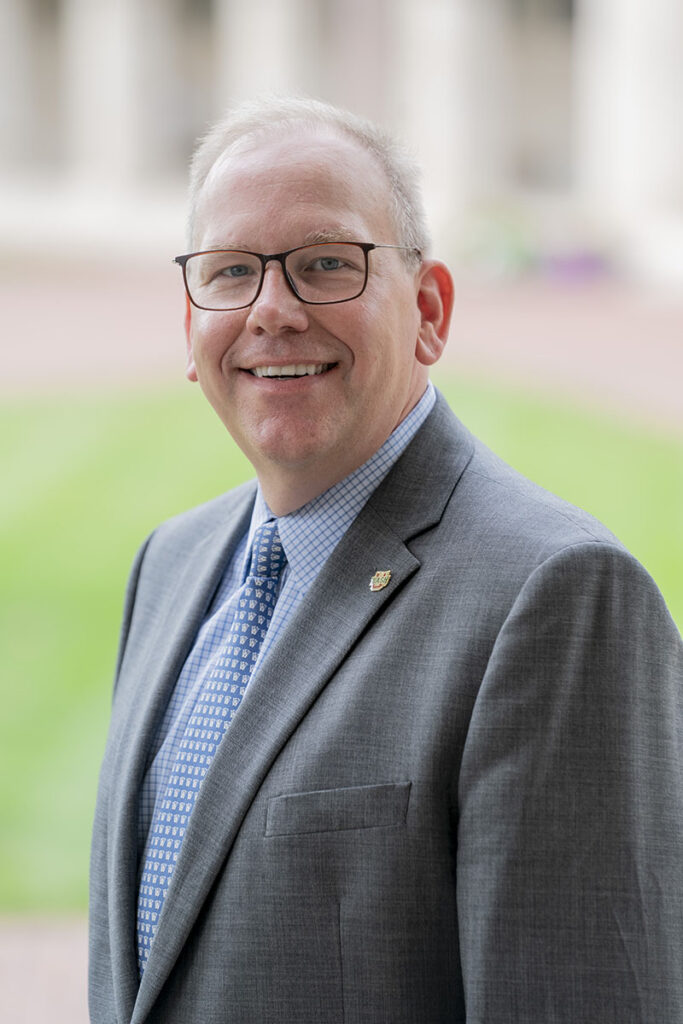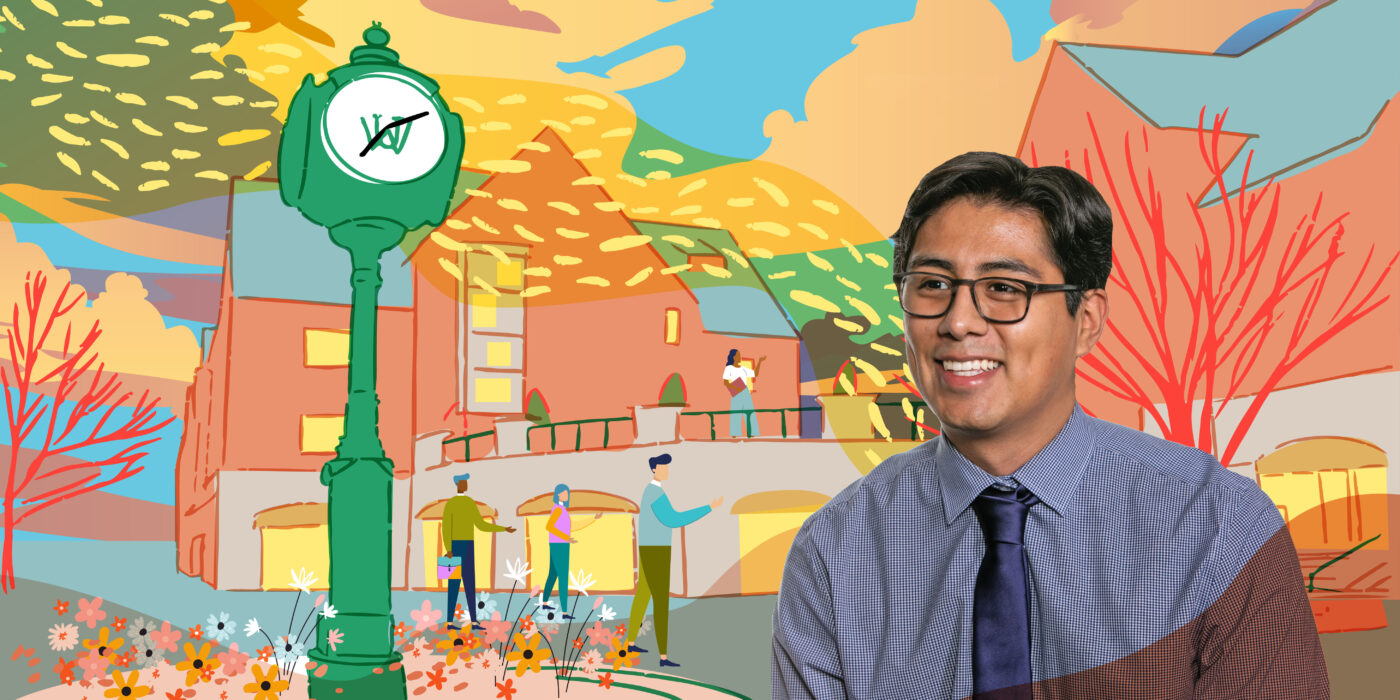As a first-generation economics student at the University of Florida, Mike Runiewicz was ineligible for Pell grants. Not because his family had money; it didn’t. But because Runiewicz’ father refused to pay federal income taxes.

“No tax returns meant no FAFSA, meant no federal financial aid,” says Runiewicz, assistant vice provost and director of Student Financial Services at Washington University in St. Louis. “That decision caused chaos in my life.”
It also led Runiewicz to a career in higher education where he helps families navigate the complicated financial aid process and oversees the distribution of $150 million in financial aid every year. Runiewicz also works to develop innovative tools to support low-income, first-generation students such as startup grants for books and supplies, technology grants for computers, and helps support the Office of Student Success’ fund for unexpected emergencies and educational enrichment activities like conferences and admission tests. In addition, Runiewicz’ office administers the WashU Pledge, which provides a free WashU education to accepted undergraduates from Missouri and southern Illinois.
“I didn’t tell my story until I was older because I was embarrassed, and I was worried about my dad going to jail,” says Runiewicz, whose father is now deceased. “That experience informs my every interaction I have with students. I never forget every student has their own unique situation and needs.”
Students like first-generation student Michael Aguilar of Houston. In May 2021, Aguilar will graduate with a degree in economics in Arts & Sciences and start his career in finance at investment bank Evercore. But not long ago, Aguilar lived in poverty, sometimes going without water or electricity. His parents were physically and mentally abusive and moved him and his siblings 16 times in 18 years. After high school, Aguilar got his own place and a job selling shoes for Nike. He had no desire to go to college and couldn’t afford it even if he did.
“I never forget every student has their own unique situation and needs.”
Mike Runiewicz, assistant vice provost and director of Student Financial Services
“I didn’t have a five-year plan; I barely had a six-month plan,” Aguilar recalls.
But Aguilar’s boss saw something in him and urged Aguilar to apply for a Nike scholarship to cover the cost of community college. He applied, won a scholarship and immediately excelled. On his wall, Aguilar painted a quote from Malcolm X: “Education is our passport to the future, for tomorrow belongs to the people who prepare for it today.”
“I looked at those words every day before class and they motivated me,” Aguilar says. “I was going to college not because everyone else was, but because I really want an education, not just As.”
Make no mistake, he also wanted the As. Aguilar knew a stellar transcript would earn him a spot at an elite university. And it did — Aguilar was accepted by several top schools. But Washington University offered a financial aid package that met his full needs.
“That package showed me that WashU really wanted someone from my background to come and be a part of the community.”
Michael Aguilar, Class of 2021
“They took the time to understand my weird financial situation,” says Aguilar, explaining that his dad, like Runiewicz’ father, refused to provide required financial documents. Not that it should have mattered. Though legally a dependent, Aguilar had been paying his own rent and bills for years.
“That package showed me that WashU really wanted someone from my background to come and be part of the community,” says Aguilar, who has been active in Phi Gamma Nu business fraternity. “The day I was admitted was the moment I shed an identity in which I defined myself as an underachieving kid from a broken, low-income family. Instead, I proudly called myself an incoming undergraduate student at a premier university.”
Diane Toroian Keaggy, AB ’90, is senior news director of campus life.

Comments and respectful dialogue are encouraged, but content will be moderated. Please, no personal attacks, obscenity or profanity, selling of commercial products, or endorsements of political candidates or positions. We reserve the right to remove any inappropriate comments. We also cannot address individual medical concerns or provide medical advice in this forum.